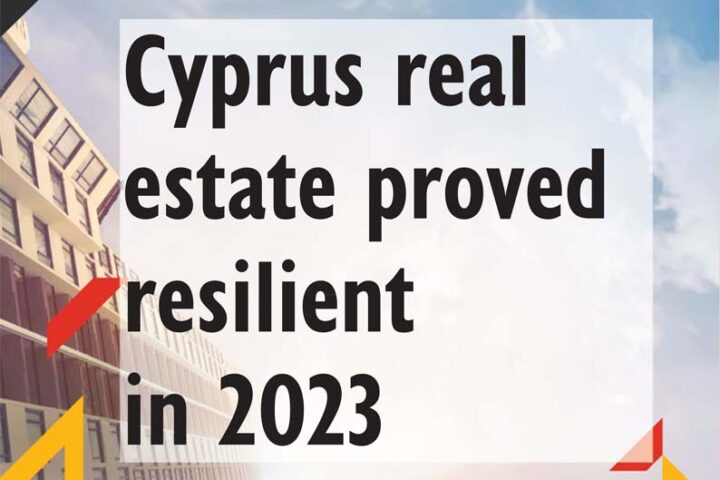In response to the increase in interest rates, we’ve observed several budget adjustments among borrowers.
Also, property buyers are currently opting for more deliberate and considered purchases.
This means the duration required from estate agents and property professionals to guide clients towards finding their ideal property has lengthened.
Reduction in Lending
In April, Cyprus saw a big drop in new lending, according to the Central Bank.
New loans decreased to €473.9 mln, down from €922.5 mln in March 2023.
This decline affected various areas, including consumer loans, house purchase loans, and loans to non-financial companies.
Based on recent ECB data, Cyprus has some of the highest lending rates in the Eurozone.
Specifically, the average interest rate for housing loans is 4.45% in Cyprus, compared to the Eurozone’s 4.03%.
Greece stands at 4.06%, Spain at 3.47%, France at 2.99%, Luxembourg at 4.11%, Malta at 2.56%, Austria at 4.06%, Slovakia at 3.71%, and Finland at 3.62%.
Considering the anticipated decline in demand, evident from the reduction in lending activity and the fact that borrowing capacity decreases when interest rates rise, it presents a significant challenge to current price levels.
This prompts a reevaluation of market dynamics and raises questions about the sustainability of existing prices.
Construction costs are stable
According to the Statistical Service of Cyprus, the price index of construction materials has remained relatively stable since the beginning of the year.
Supply of Resale Properties will increase
Anticipated increases in non-performing loans are expected to drive property sellers to list their properties, resulting in a larger inventory for sale.
Especially those who purchased properties for investment might find themselves at a crossroads, deliberating whether servicing the loan remains a viable option or if liquidating their property proves to be the wiser choice.
The GDP is also expected to shrink slightly, adding pressure to the labour market, which, in turn, is likely to lead to an increase in unemployment or, at the very least, pose challenges to some extent.
Following this, along with the erosion of households’ purchasing power, leads to additional reasons why the supply of resale properties and the motivation of existing owners to sell are expected to rise during 2023 and throughout 2024.
Yet, the supply of resale properties from the funds is expected to remain stable.
Supply of New Housing to rise
Fewer building permits/projects are anticipated, but an increase in the number of units and larger projects is expected to enter the market.
When comparing January to May with the same period in 2022, all types of residential building permits fell by around 9%.
However, they have increased by 3% in size/area (m²), 3.5% in the number of units, and approximately 18% in value.
This trend of increasing size and units can be attributed to recent legislative announcements about reduced VAT policies that impose size (and value) restrictions.
As a result, developers have rushed to secure valid building permits to ensure that the new changes won’t affect their future medium-term projects.
Additionally, the increase in value is attributed to rising construction costs.
Overall, considering only the data from permits issued between January and May 2023, it is expected that approximately 4,135 new residential units will enter the market in Cyprus in the coming years.
Based on the trends mentioned above, it appears that prices are currently in the process of stabilisation.
This is expected to be accompanied by downward pressure, leading to a minor decline in nominal prices.
Nonetheless, it is crucial to note that if inflation persists at high levels and nominal prices remain stable for an extended period, the ‘real’ prices of properties will inevitably erode.
In our opinion, this scenario appears to be the most plausible.
By Charalambos Pitros, Member of the Royal Institution of Chartered Surveyors (MRICS), Lecturer in Real Estate at American University of Cyprus (AUCY) and Chartered Surveyor Valuer at Zyprus Real Estate – Property Valuers & Estate Agents www.zyprus.com
The views and opinions expressed in this article are solely those of the author










